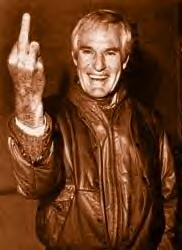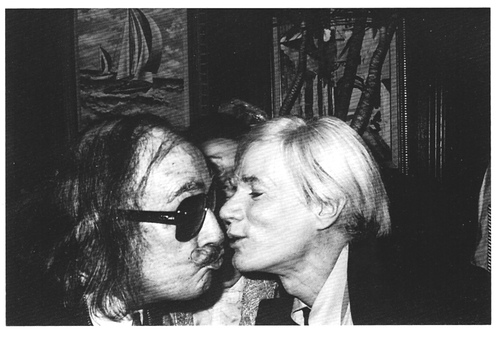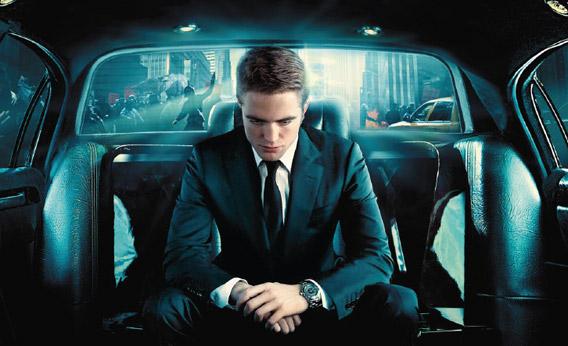  As I close in on the evolution of Mondo 2000 History Project book content to the point where I have to consider what the final thing will be — it becomes clear that it will be about 1/3 collective memoir; 1/3 my memoir and 1/3 scrapbook. The challenge is to have all of it somehow fitting into my grand (or perhaps grandiose… apparently candidate Gingrich now think grandiosity is something to brag about politically and who am I to argue. Well, actually, I would argue were I to take the time… but grandiosity in art/artifice can on occasion strike paydirt) scheme to have it all somehow fit together and read like a very dense and complex novel (but who would believe in these characters?)
 As I close in on the evolution of Mondo 2000 History Project book content to the point where I have to consider what the final thing will be — it becomes clear that it will be about 1/3 collective memoir; 1/3 my memoir and 1/3 scrapbook. The challenge is to have all of it somehow fitting into my grand (or perhaps grandiose… apparently candidate Gingrich now think grandiosity is something to brag about politically and who am I to argue. Well, actually, I would argue were I to take the time… but grandiosity in art/artifice can on occasion strike paydirt) scheme to have it all somehow fit together and read like a very dense and complex novel (but who would believe in these characters?)
In this context, some of the work involves me retrieving origin stories from my past to illuminate the influences that brought me to High Frontiers and eventually to Mondo 2000 and the cyber counterculture.
Recently, Boing Boing had me contribute to their marvelous weeklong tribute to Robert Anton Wilson — and only as I sat down to write something for them, I remembered that “The Timothy Leary/Robert Anton Wilson trip†was at the unfinished top of my outline of things I need to write for the book. I had put it off as a big challenge and had moved on to other stories and observations.
I originally imagined that this entry for the book would be largely about the philosophy or Reality Tunnel that some call the “Leary-Wilson Paradigm.â€Â I would — of necessity — interrupt a narrative flow that leans towards storytelling to explain ideas, since the “Leary-Wilson Paradigm,†more than anything else influenced the magazine I wanted to create.
But as my story about discovering the Illuminatus Trilogy emerged for the Boing Boing contribution, it became clear to me that I needed to explain my fascination with Leary in a somewhat similar style — ultimately merging the two stores into one short section of the Mondo book.
And it was while thinking about my initial fascination with Leary that this entry took a dangerous turn towards “confessing†my mid-70s fascination with famous pariahs… outcasts from outcast culture. I have a touch of trepidation about presenting these thoughts in these knee jerk times… that people will think I’m speaking to today’s politics rather than the complicated and sometimes contradictory impulses that motivate activity — and also wonder, often, if I’m going to be telling the MONDOids the stories they want to hear — or if I should care about it.
As to the stuff about Leary maybe being “a fink,†yes… I leave it hanging, as it will always be hanging. I would say, though, that one of my favorite moments in Mondo history was when I began editing the conversation Leary had taped with William Gibson  (not knowing it would ultimately be transcribed for print) and came across Tim casually talking about being thrown into “the hole†in a Minnesota Prison because the feds were dissatisfied with his testimony about the Weather Underground. (You won’t find it in the linked segment, but you will find it in the magazine… if you have a copy.)
Anyway, for your reading pleasure… a possible fragment from the Mondo 2000 History Project book, tentatively titled “Use Your Hallucinations: A History of Mondo 2000 and the Cyber Counterculture.â€
Pariahs Made Me Do It: The Leary-Wilson-Warhol-Dali Influence
As you already have surmised, I came up through the New Left Revolution years. From 1968 – 1971 — during and just after high school, I knew that the revolution had come.  Some as yet inchoate mix of left anarchist radicalism and newly psychedelicized youth mutation was simply taking over the world by storm. As Hunter Thompson famously rhapsodized, “There was madness in any direction, at any hour… You could strike sparks anywhere. There was a fantastic universal sense that whatever we were doing was right, that we were winning.… Our energy would simply prevail…We had all the momentum; we were riding the crest of a high and beautiful wave.â€Â Right (or left) or wrong, it was exciting and energizing to be a part of it.
But by the mid-70s, people on the left radical countercultural scene had become — at best, mopey and quarrelsome — and, at worst, either criminally insane or very tightly wound politically correct environmentalist/feminist/health-food scolds. People were either bitchy; or in retreat — smoking pot and listening to the mellow sounds of James Taylor and Carole King.
I didn’t know it consciously at the time, but I needed to create a space within my psyche that liberated me from the constancy of moral judgment and eco-apocalypse mongering — and one that also didn’t represent a retreat into the mediocrity of middle class liberalism.
Thus, I was attracted to flamboyant “hip pariahs†who were very un-left, politically incorrect… even, in some cases, right wing.
There was the glam rock rebellion against blue denim hippie populism. These performers insulted egalitarianism by dressing and performing in ways that set them apart from their generation’s rock audiences . (Naturally, good old Mick Jagger was the major rock god who didn’t need to change to be a part of it.) David Bowie, Alice Cooper, Lou Reed all nipped — in interviews and lyrics and musical styles — at assumed countercultural values while also mocking, at least, cultural conservatism by their very androgynous existences.
I gobbled up materials on, or by, Andy Warhol and Salvador Dali — each, in their way, pariah outcasts from political decency — particularly Dali.

By being an unsane solipsistic monarchist, loving money, supporting the fascist Francisco Franco, Dali seemed to me to be the purest of surrealists, running with his subconscious atavistic impulses against the earlier sympathies of the surrealists with the left and developing an utterly inexcusable (sometimes when I say — as I do at the opening of this book — that aspects of my story and my mind are inexcusable, I’m not just using colorful language. I mean it literally) but original persona. His autobiographical and philosophic texts defied logic in ways that seemed to me to be more genuinely playful and funny than his former fellow travels in 20th Century Surrealism who had long since denounced him.
Warhol played an even more important role in liberating my soul and psyche from the depths of resentment and rational piety since his very role in art and culture was to create a space free from judgment. While Andy was nominally a liberal, his deadpan consumerist art and aphorisms had a Zen quality — it could, paradoxically, cause you to embrace the flow of frozen moments and artifice for artifice’s sake by inducing silence in the chattering, protesting, judging brain. To properly experience Warhol was to almost stop thinking… in the best possible way… while still hanging on by a thread to a sense of humorous irony.
And then there was Dr. Timothy Leary. There was the legendary Leary… all that stuff about turning on tuning in dropping out the 1960s. I had read and enjoyed his book High Priest, but actually thought of him as something of an old guy who seemed to be trying too hard to fit into the youth culture. It was the Leary of the ‘70s that fascinated me. During the height of my own romantic infatuation with “The Revolution,†Leary had made a heroic prison escape. He had been spirited away by the guerrilla warriors of the Weather Underground and had shown up in Algeria with Eldridge Cleaver’s exiled Black Panther chapter, pronouncing unity between the psychedelic and leftist and black revolutions and promising to help Cleaver form a revolutionary US government in exile. At that time, all of these people — Weather Underground leader Bernadine Dohrn, Eldridge Cleaver, Timothy Leary, Stew Albert — who led a contingent of Yippies over there to cement the alliance — were icons to me, more or less on a par with The Beatles and The Stones (or at least, the Jefferson Airplane and Jimi Hendrix).
Then, after conflicts with Cleaver — and just as the buzz of the revolution was souring, he had disappeared, showing up only in a few gossipy pieces that portrayed him hanging out with fellow exile Keith Richards and issuing bon mots that were more of the flavor of Oscar Wilde than Che Guevara.
Then, he was caught in Afghanistan and shipped back in chains to the USA facing a lifetime in prison. And not long after that, rumors circulated that he was ratting out the radical movement.  This was very depressing. But at the same time, occasional interesting signals emerged — usually published in the underground press — from Folsom Prison where he was being held. Strange little quotes about being an intelligence agent for the future; about “offering the only hopeful eschatology around today;†about dna being a seed from outer space; about “going home†to galaxy central and human destiny being in the stars; about how he was writing a “science faction†book. Odd signals not fully formed — nevertheless somehow intriguingly differing from the dour vibe emitted by the rest of those publications at that particular time. I couldn’t help myself. My mutant brain was already starting to find the apostate Leary’s signals refreshing. I was doomed to become a “science faction†mutant.
[ insert Robert Anton Wilson section here ]
It was several years later, in 1976, that I came across an edition of Crawdaddy, a very cool rock magazine with regular columns by William Burroughs and Paul Krassner that contained an article about the recently released Dr. Tim. The writer hung out with Tim as he wandered around NYC rattling off his ideas about SMI2LE — Space Migration Intelligence Increase Life Extension — sending up the first coherent transhumanist flare of the 20th Century. There was a picture of Leary in a business suit standing between the newly built twin towers wearing a smile that laughed out loud and pointing, almost violently, with his right forefinger upward to outer space. This was something new. The picture took its place on my wall in between the cover of the first Ramones album and the picture of Squeeky Fromme being arrested after her attempted assassination of President Gerald Ford.
My final “conversion†to Learyesque proto-transhumanism came in 1977. It was summer and my mother had the intuitive sense to hustle me away from Binghamton, where my friends were becoming junkies, and moved me early to the college town of Brockport New York where I would start school that fall. The town was empty and there was nothing to do. But the town’s bookstore was open. I walked in and there — on prominent display — were two books by Timothy Leary, Exo-Psychology and Neuropolitics. The latter also credited Robert Anton Wilson.
I read those books frontways and back and inside out. And then I read them again. It all resonated. It all made sense to me. It was a way of interpreting the world that respected my psychedelic experiences and my times within the counterculture and gave them a new context — one that hadn’t yet failed! These were now the evolutionary experiences of a premature mutant breaking at least partly free of the programming of an unhappy, repressive civilization so that I could move it towards a bright and expansive future. The expansiveness that had so energized and delighted me during the late 1960s and early ‘70s would now be — at least partially — a science project to literally expand our space and time and minds perhaps unto infinity.
I was excited, but I was also tentative. I paced around my small one room apartment. Was I crazy? Was I wrong? By now, self identifying as a 1977 spikey-haired hipster who liked to put his cheap punk nihilism unapologetically front and center (yes, trendiness haunts all my days), could I tell anybody about my philosophic attraction to the upbeat pariah and possible fink Dr. Leary?  Actually, that’s something I still ask myself today, although it is clearly too late.




